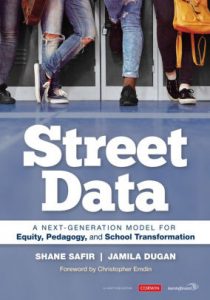For Your Health, Schedule Reading Time Like You Would Workout Time
Over the course of the past few weeks, we’ve asked you to join us as we’ve highlighted some of the most influential books off of our summer reading list. So far, we’ve covered important topics that helped you engage through a lens of Individual & Growth and Culture & Climate. Our final week’s reading recommendation focuses on engaging your growth through Structures & System. And like most, we’ve saved our best title for last.
Hopefully, through the high quality texts we’ve recommended, your soul is feeling refreshed through the unity of knowing you’re not alone in your feelings of shame and need for expressed vulnerability in You Are Your Best Thing: Vulnerability, Shame Resilience, and the Black Experience and your mind is feeling enriched through the possibilities of creating and leading a human-centered culture in Design Justice: Community-Led Practices to Build the World We All Need.
As summer’s end approaches, we invite you to become innovative and intentional in how you fit meaningful reading into your day. Just like purposefully scheduling workout times is good for your body, so too is scheduling reading time equally beneficial to your brain. Some of our tricks include using an app you can invest in that reads the text aloud during driving time, grab a couple of quick pages while the laundry is going at the end of the day, or even start a small book club with colleagues to help hold each other accountable. Any strategy you choose, we know you’ll love our last recommendation from our summer reading list as much as we did.
Be sure to reach out and let us know what you thought of our recommendations (and to recommend some good reads you’ve come across on your own)!
Want to engage through growth in STRUCTURES & SYSTEMS?
 SUGGESTED READ:Street Data: A Next-Generation Model for Equity, Pedagogy, and School Transformation by Shane Safir and Jamila Dugan, Corwin – A Sage Publishing Company: 2021, 249 pages.
SUGGESTED READ:Street Data: A Next-Generation Model for Equity, Pedagogy, and School Transformation by Shane Safir and Jamila Dugan, Corwin – A Sage Publishing Company: 2021, 249 pages.
WHY IT ENGAGES US: As a company, we seek transformational change through qualitative and quantitative data efforts that purposely decenters whiteness as normative. This book details an approach to data collection and usage that elevates the expertise of Black and Indigenous communities. It actionizes Audre Lourde’s famous statement that “the master’s tools will never dismantle the master’s house.” In this house of an educational system, we can choose to use data as a weapon that furthers biases and equity traps & tropes or as a tool that transforms structures of support for society’s least reached. You will leave this book ready to engage your spheres of influence with empathy-driven data points and actionable steps to build systems of justice and liberation.
COMPELLING QUOTE: “I have written this book as an offering: May we dig up the roots of our deepest beliefs about education that never served children at the margins. I have written this book as a healing: May we nourish a process of truth and reconciliation that frees all from the grip of white supremacy and restores the inherent dignity and worth of every human being. I have written this book as a promise: May I recommit daily to each of you, to the ancestors, and to the long arc of struggle for justice” (Safir, 11).

Leave a Reply
The comments are closed.